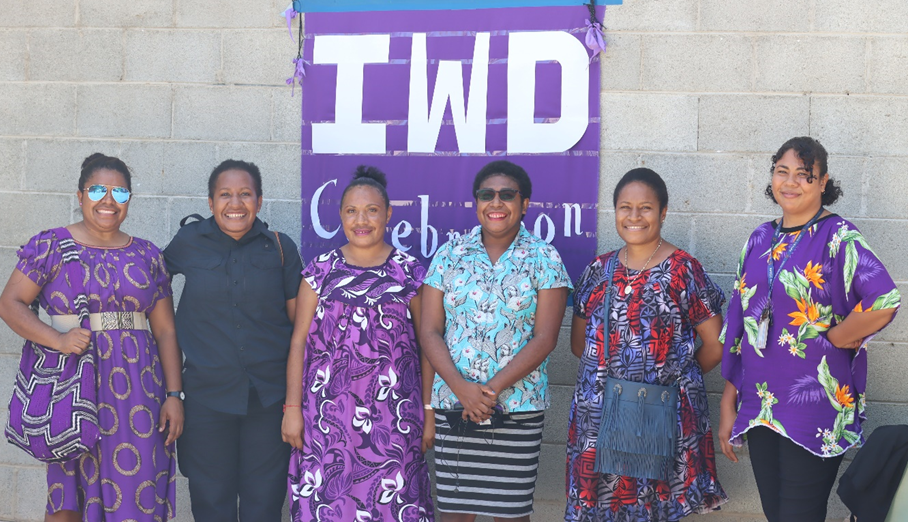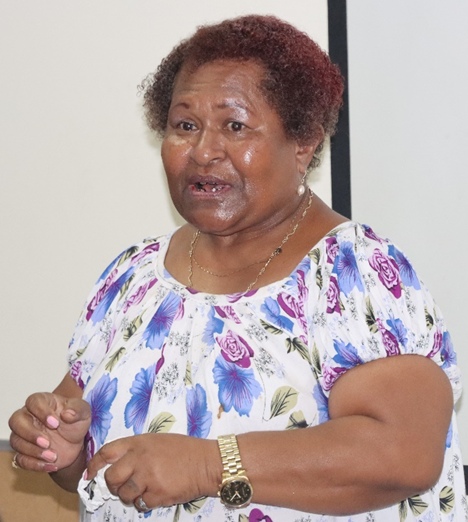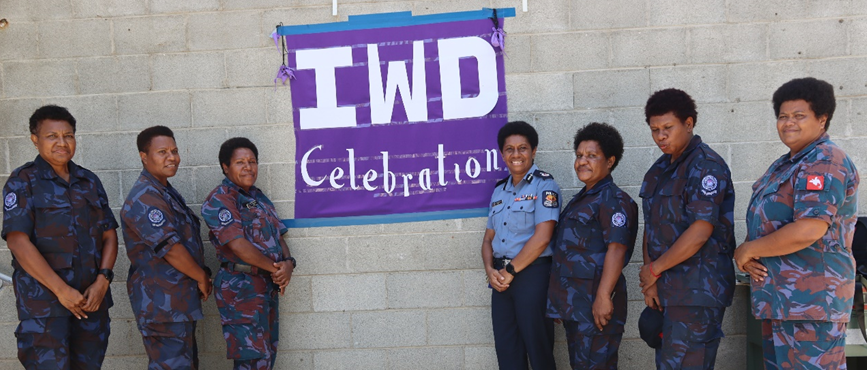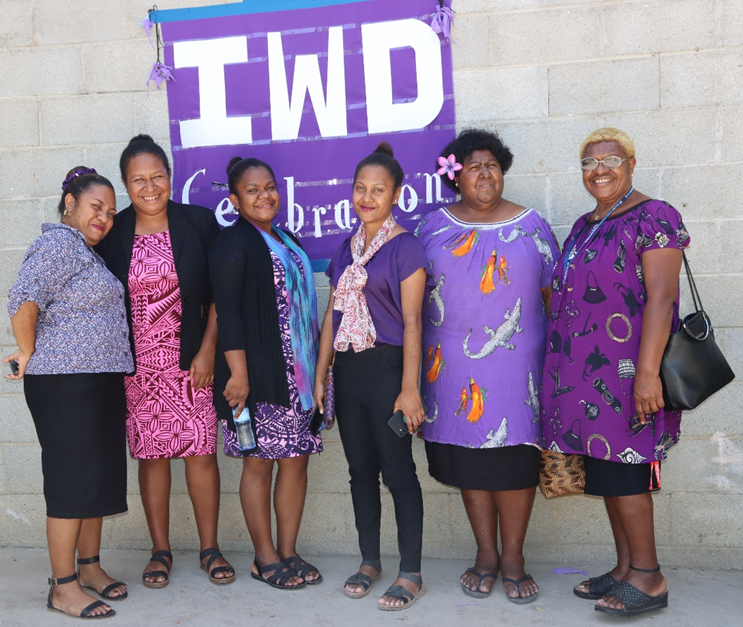(Report by Police Media Officer Jessemie Amlakwin.)
Self-worth and self-esteem are important for personal development and organizational success, says the Managing Director of the PNG Institute of Directors, Ms Christine Sumbuk.
Ms Sumbuk made this remark when she addressed both sworn and unsworn female members of the Royal Papua New Guinea Constabulary (RPNGC) at a conference at the National Police Headquarters in Konedobu in the National Capital District to celebrate International Women’s Day.
Women in PNG joined the rest of women worldwide in celebrating the International Women’s Day on Wednesday 8th of March 2023.
Ms Sumbuk, who was the guest speaker at the police headquarters, said this is the day the world celebrates the existence of the “other half of human beings”.
“It is a time to celebrate women but also be reminded to see each other firstly as human beings then as women,” Ms Sumbuk said.
She spoke of two important things which she said many tend to forget and these are self-esteem and self-worth.
Ms Sumbuk Said, “I want to focus on that ‘I’, the ‘Me and the ‘Myself’. My career in different organizations and my job as a trainer focused primarily on two things – improving and strengthening systems and processes in the workplace through which people work to get things done, and working with people to change their views on how they see themselves and their contribution in the workplace.
“If you look at these two identifications, they are about people. It’s the people that make the difference in the organization. Those organizations that I know that are thriving and pushing boundaries are those that take care of its people.”
Ms Sumbuk said over time it is seen in both private and public sector organizations that if you look after your people, they will look after you. It does not necessarily mean financial gains but a whole heap of self-development and personal growth. You may see it in light of empowerment, this could be a form of empowerment because it is the people that work the system that make things happen.
She said self-worth and self-esteem play a big part. These have a direct effect on people who then have a direct effect on systems and processes which then has a direct impact on the organization on its output and productivity.
“If you cannot change what’s out there, change you, because it’s easier to change you then to change somebody else.
“For self-worth it is people who view themselves worthy of themselves, not for others, over others but for themselves to do something good and when they eventually do something good, they progress in life. This is because they do have a higher self-worth. This is having the belief that my life is worth more, I am of value, I have a sense of worth, I have a valuable contribution to make to this organization and I will step up, I will be in the spotlight to make the change and to make that contribution,” Ms Sumbuk said.
She said those who do not see themselves as worthy of themselves and for themselves have difficulties progressing in life. She said such people view life negatively, they speak negativity, and they have a lot of excuses in life. They basically have a low self-worth and they do not see themselves worthy of something good.
“If you do not have self-worth, what are you going to do to improve somebody else? What are you going to do to empower somebody else? Because you don’t even have the power yourself to call yourself valuable in the first place,” she challenged.
Ms Sumbuk said a person with a higher self-worth is believed to have a more stable and positive form of self-esteem. It provides protection against stress and emotional problems whilst also making a person healthier, happier and more successful in life.
She said, “If you have a higher self-worth, you are more likely to believe you are good, worthy, lovable, regardless of what is happening in life, even in the workplace. You are feeling deserving of love and respect from other people.”
Ms Sumbuk encouraged the women to practice self-compassion and treat self with care, kindness, and respect. She urged the women to believe in their own potential to grow, to learn, to change and to improve themselves.
She added that people with low self-esteem are less confident and have more negative thoughts and feelings about themselves, and because self-esteem involves one’s thoughts, low self-esteem can be situational or it can be chronic.
Ms Sumbuk said chronic low self-esteem is more likely to cause emotional and behavioral problems, adding that, “Self-esteem fluctuates more than self-worth. For example, getting negative or positive feedback from your boss at the workplace could cause your self-esteem to go down or up but it will not even affect your self-worth.
“Self-esteem is based on what you think other people think of you. Women tend to forget themselves most times and care for those around them. Remember to look after me, myself, and I.
“To empower others, one must first know your worth, one must know yourself. That is the first principle in leadership.”
She said knowing yourself is based on knowing your value and acting upon it with confidence and with respect. Leadership and empowerment cannot happen unless you know yourself. To know yourself you must be aware of yourself, aware of yourself means knowing where you are and in what surrounding you are in and how your actions will affect other people, that’s self-awareness.
“All of these words about self are about you. Self means you, so I’m talking about self-worth, self-esteem, self-care, and everything about self. It is not a word closely related to selfishness,” Ms Sumbuk concluded.
Senior Constable Helen Kaime, who was the host for the day, said this was the first of its kind to have RPNGC host this day on its own to celebrate women’s effort and contribution towards the organization and societies.
She encouraged all women to always remember this date and dress beautifully in the years to come to celebrate how far they’ve come, their achievements, as well as the challenges they have faced in the workplace and society as well.
Deputy Commissioner of Police Administration, Joanne Clarkson, who was part of the celebration thanked all women in the RPNGC for their tireless effort and contribution to this male dominated working environment and said to have a bigger celebration next year.






